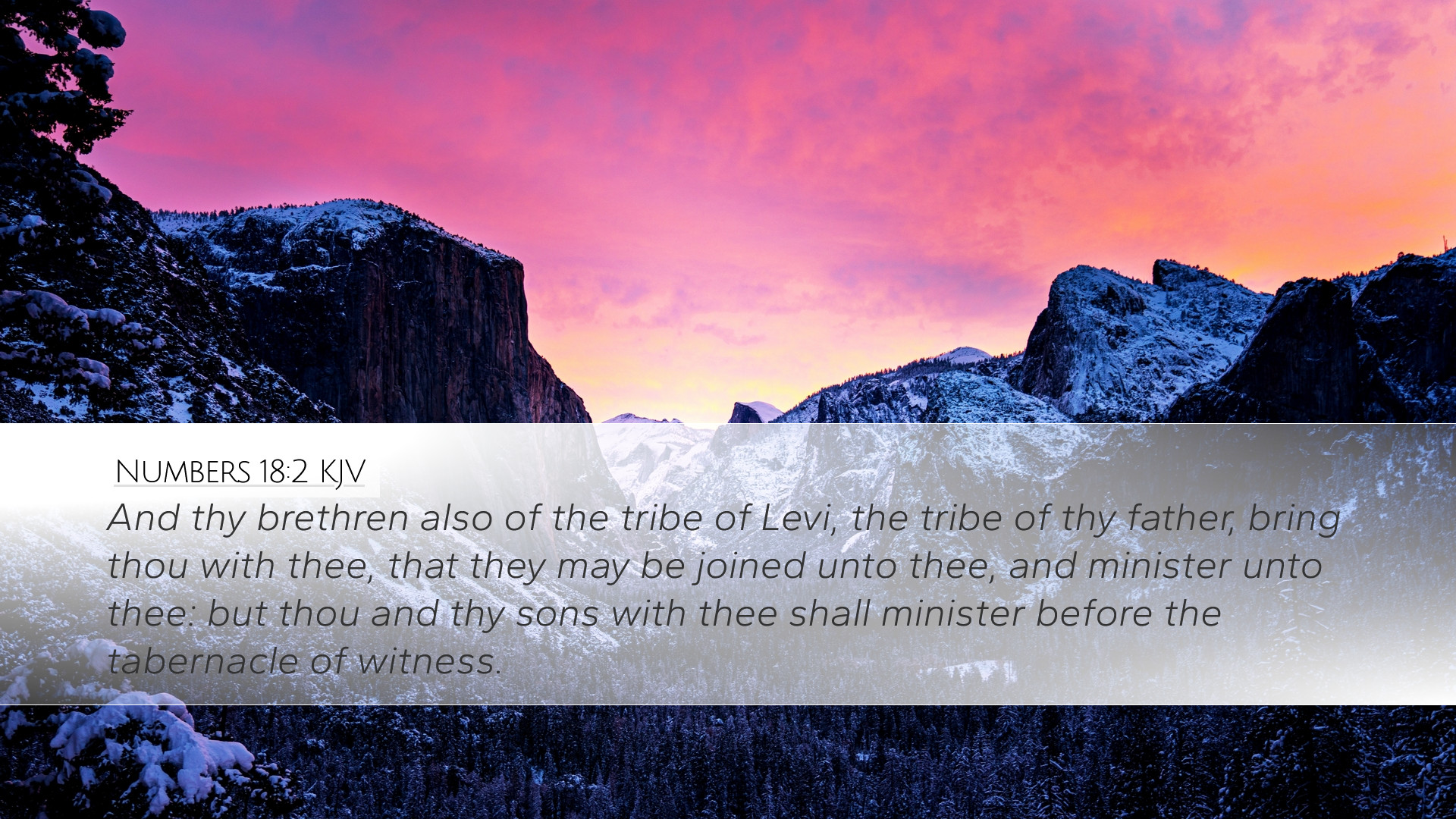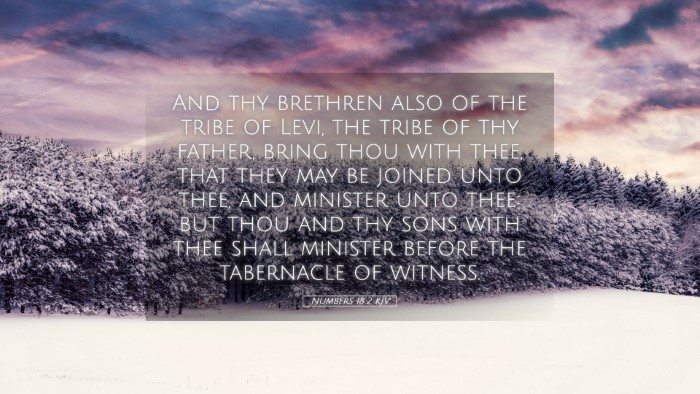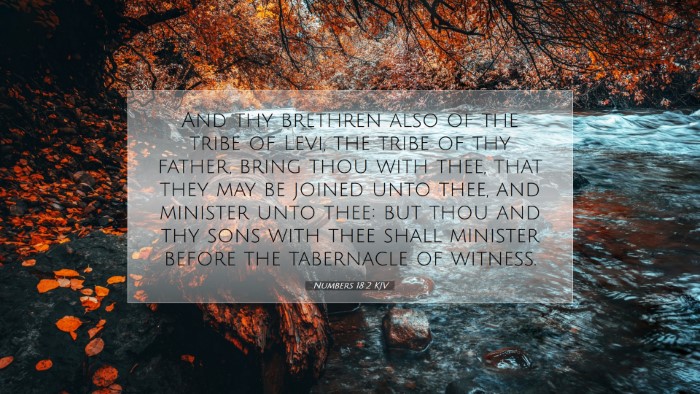Commentary on Numbers 18:2
Text of the Verse: "And thy brethren also of the tribe of Levi, the tribe of thy father, bring thou with thee, that they may be joined unto thee, and minister unto thee: but thou and thy sons with thee shall minister before the tabernacle of witness."
Introduction
Numbers 18:2 is a pivotal verse that outlines the role and responsibilities of the Levites within the Israelite community, particularly in relation to Aaron and his immediate family, who were appointed as priests. This verse sheds light on the divine organization of worship, the priestly duties, and the community's acknowledgment of God's ordinance in service and ministry.
The Context of Numbers 18
The book of Numbers deals with the wilderness wanderings of the Israelites and sets forth various laws, ordinances, and commandments that govern their community life. The Levites were chosen not only for their unique lineage but for their responsibilities of service to God and the people. This chapter particularly focuses on the sanctified role of the priestly family amidst the broader framework of Israelite worship.
Insights from Commentaries
Matthew Henry's Commentary
Matthew Henry emphasizes the divine appointment of the Levites as assistance to the priests, highlighting their unique role as helpers within the sanctuary. He notes that their service is not simply about physical labor but is deeply rooted in a spiritual calling to aid in the worship of God. It underscores the collaborative nature of the ministry, where the Levites act as vital support to Aaron and his sons.
- Significance of Brotherhood: Henry points out that the phrase "thy brethren" reinforces the familial ties and shared responsibilities among the Levites. This fosters unity and emphasizes that they are part of the same divine calling.
- Division of Duties: The need for division in service indicates that God desires order and structure in worship, which serves as a model for modern ministries.
Albert Barnes' Notes on the Bible
Barnes focuses on the functional aspect of the Levites' role. He explains that their ministry alongside Aaron is essential for maintaining the holiness of the Tabernacle operations. The support they provided to the priests ensures the continuity of worship practices.
- Ministerial Responsibility: Barnes stresses the serious responsibility placed on both Aaron and the Levites. Their work signifies a higher calling and the importance of maintaining purity and order in worship activities.
- Symbolic Representation: The joining of Aaron with his Levitical brethren symbolizes the collective aim towards God, a precursor to understanding the New Testament concept of the body of Christ in which all believers have unique roles yet share a common goal.
Adam Clarke's Commentary
Adam Clarke provides a thorough exploration of the term "minister" as used in this context, asserting that it implies a range of duties that extend beyond mere physical tasks. He emphasizes that "minister" here encompasses spiritual leadership and guidance.
- Spiritual Leadership: Clarke articulates how the ministerial duties expected of both Aaron and the Levites were instrumental in ensuring the spiritual integrity of the entire congregation.
- Divine Favor: The organization of priestly duties reflects God's favor upon Aaron and his household, thus resulting in a genealogical legacy of service that extends through the ages.
Theological Implications
The ramifications of Numbers 18:2 extend beyond the Old Testament framework into the leadership models employed in contemporary church settings. The roles outlined exemplify a divinely ordained structure that maintains order and sacredness around worship.
- Call to Service: Every individual within a ministry can see themselves reflected in the Levites, as service to God requires dedication, cooperation, and understanding of one's role.
- Unity in Diversity: The interdependence of the priests and Levites serves as a model for today’s church, underscoring that while roles may differ, the purpose remains unified - to glorify God.
Practical Applications for Modern Ministry
In light of Numbers 18:2, current ministry leaders can derive several actionable insights:
- Collaboration Over Competition: Emphasizing teamwork among church members and staff can cultivate a spirit of unity, mirroring the Levites' support for their leaders.
- Establishing Clear Responsibilities: Defining roles within ministry allows for effective worship practices and fosters accountability among leaders and congregants.
- Encouragement of Lay Ministry: Recognizing the importance of lay leaders or volunteers in supporting pastoral staff can result in a more vibrant church community.
Conclusion
Numbers 18:2 invites readers to consider the divinely orchestrated roles within ministry that continue to echo throughout time. It teaches us about the importance of assistance, the seriousness of our responsibilities towards worship, and the beauty of collaborative ministry. As pastors, scholars, and students delve into this text, they are challenged to embrace their roles in service to God and the community, reflecting the unity espoused in this biblical model.


